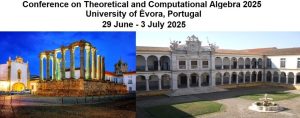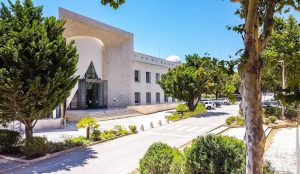Seminar of Analysis
Speaker: Prof. João Carvalho (Centre for Mathematics, University of Porto &Prince Henry Portucalense University).
Date/time: 04/07/2025 (Friday), from 14:15 to 15:15.
Location: Room 4.7, Building VIII.
Title: Nonlinear dynamics and bifurcationsin epidemic models
Abstract: In thefirst part we analyze a periodically forced SIR model. We prove that for $R0< 1$ the system exhibits multiple endemic equilibria -- backwardbifurcation. Using the theory of strange attractors, we prove the persistenceof strange attractors for an open subset in the parameter space where R0 < 1.
In the second part, we address a modified SIRmodel with a constant vaccination strategy and the bifurcations it unfolds. Weexplicitly prove that the endemic equilibrium is a codimension two singularityin the parameter space (R0, p), where R0 is the basic reproduction number and pis the proportion of susceptible individuals successfully vaccinated at birth.The analytical expressions of the bifurcation curves as a function of R0 and pestimate the proportion of vaccinated susceptible individuals necessary for thedisease to be eliminated from the population.
In the third part we present our ongoing work.We focus on two main topics: (i) in the absence of seasonality, the endemic(and unique) equilibrium point undergoes supercritical and subcritical Hopfbifurcations; (ii) in the presence of seasonality, we conjecture that, via thetorus breakdown theory, the system exhibits chaotic dynamics.
In the fourth and final part, we present arecent model describing the coinfection dynamics of HIV and SARS-CoV-2 underhighly active antiretroviral therapy (HAART). Unlike previous models, ourformulation incorporates the effect of HAART on both infections. We derive thebasic reproduction numbers for each virus and show that transcriticalbifurcations occur when these values cross the threshold of one. We alsoestablish stability conditions for the disease-free equilibria. Numericalsimulations reveal that HAART, although targeting HIV, may also reduceSARS-CoV-2 proliferation in coinfected individuals -- suggesting a potentialindirect benefit not widely addressed in the existing literature.
This is joint work with Professor Alexandre Rodrigues (ISEG).






